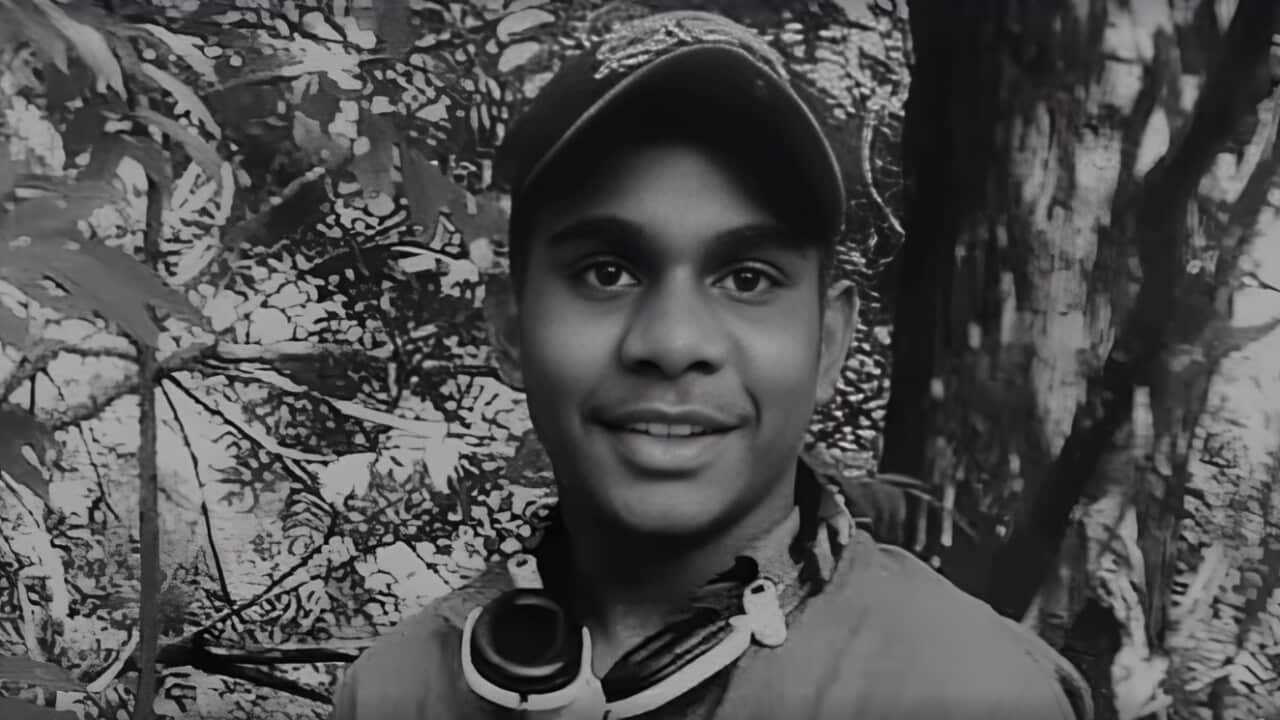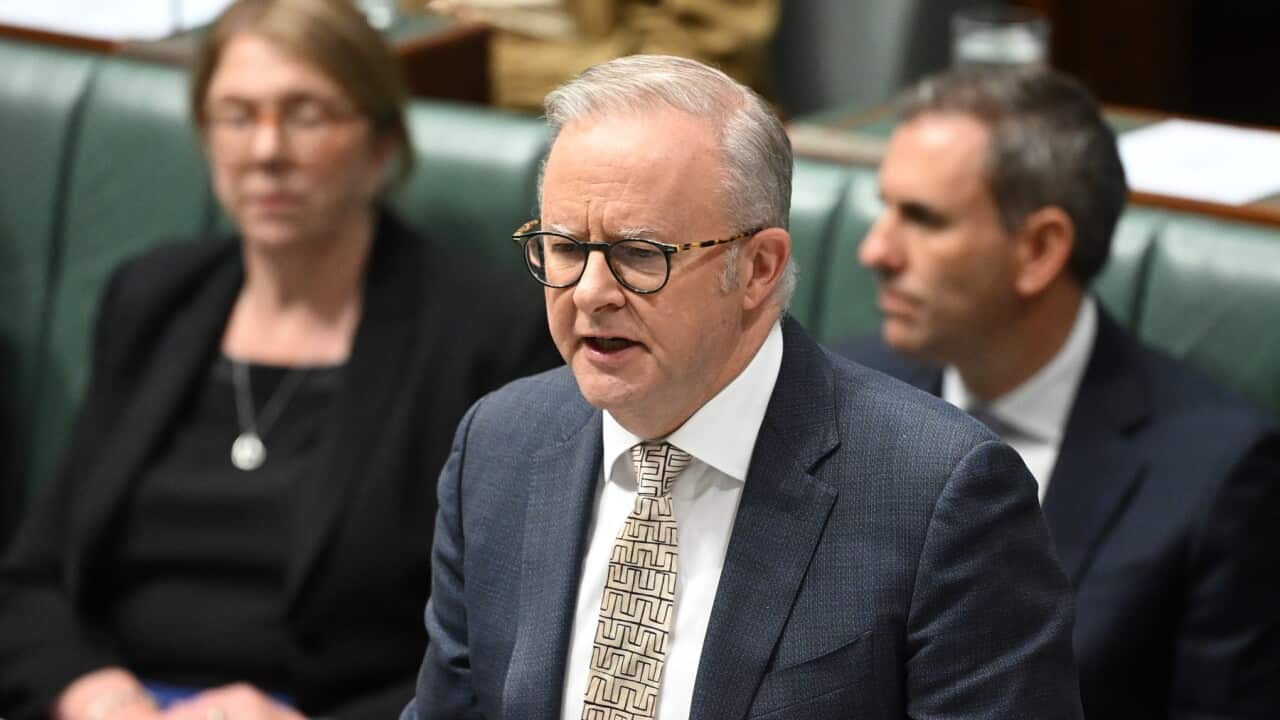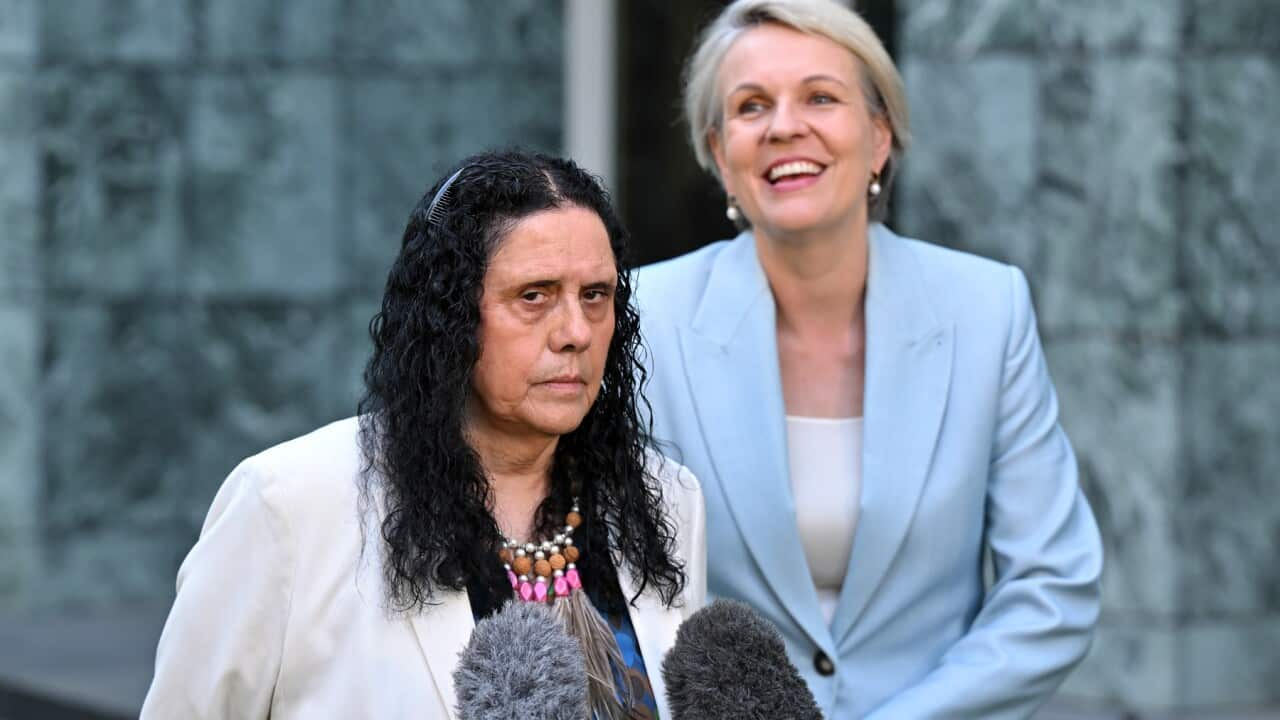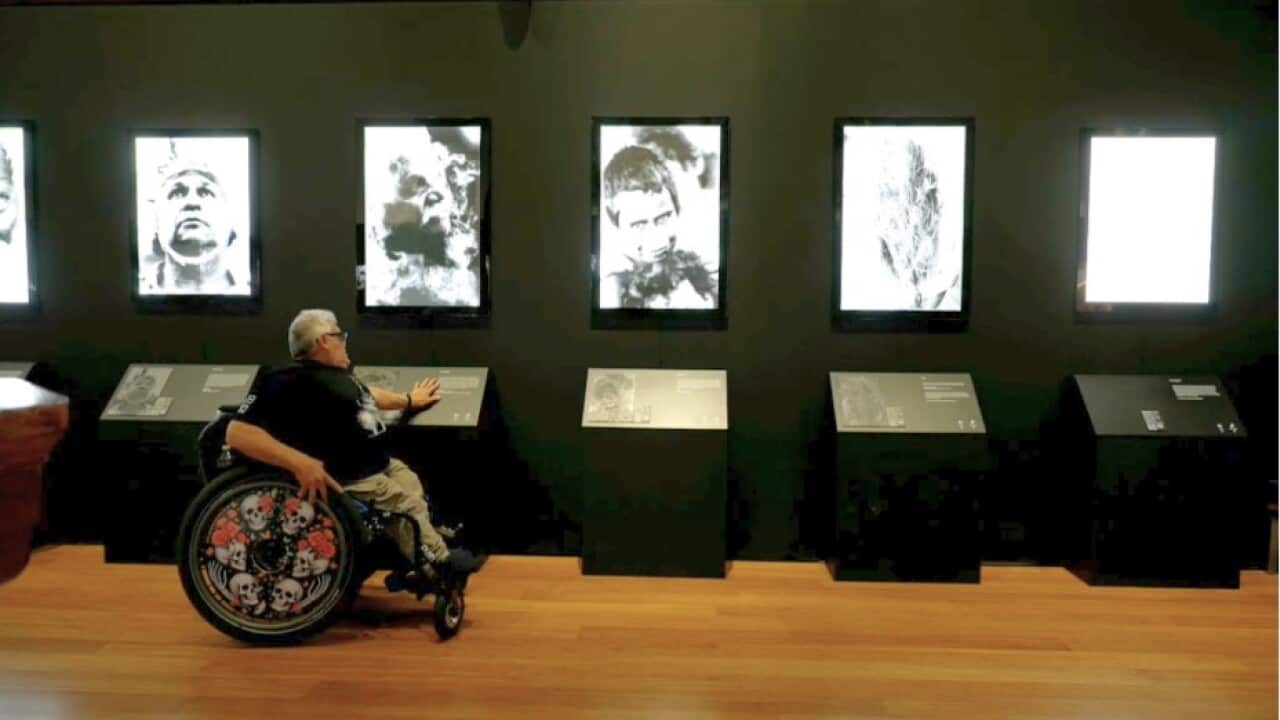Warning: this article contains distressing and violent content and the name and photo of an Aboriginal person who has died.
Listen to Australian and world news, and follow trending topics with SBS News Podcasts.
TRANSCRIPT
After almost three years of waiting, the Yuendumu community have heard the final coronial assessment of the police shooting of 19-year-old Warlpiri- Luritja man Kumanjayi Walker in November 2019.
Coroner Elizabeth Armitage travelled to Yuendumu to deliver the findings, detailed in a 683 page document which includes 32 recommendations.
Speaking after Ms Armitage addressed the community, a member of Mr Walker's family, Samara Fernandez-Brown said it will take time for the family and community to process the findings.
"We're all feeling really exhausted and quite overwhelmed, and there is so much that we need to go through. I don't want to make too much of a comment now because I want to understand what everything means before I'm going too far."
On November 9 2019, Mr Walker was fatally shot three times during an attempted arrest by then Northern Territory police constable Zachary Rolfe.
Following a six-week trial in 2022, Mr Rolfe was acquitted of all charges related to the shooting.
A coronial inquest into Mr Walker's death was initially set for 3 months, but was marred by lengthy delays.
Aboriginal and Torres Strait Islander Social Justice Commissioner at the Human Rights Commission, Katie Kiss says three years on, understanding the weight of the findings is to recognise the years of grief and trauma the community have experienced.
"And that community there have been waiting for this coroner's report to be handed down for three years now. But they've been in a constant state of grief and trauma for six years since Kumanjayi's death. And with the most recent death of Kumanjayi White, they're kept in that constant state of trauma and grief now, waiting for the next coronial report to be handed down. So these coroners reports are significant. They are focused on reform and transformation of systems that hurt and harm people."
Judge Armitage's report found Mr Walker's death was avoidable, and that the state's police force failed to protect the public through poor supervision and management of Mr Rolfe's use of force.
It details at least five occasions prior to Mr Walker's death when Mr Rolfe used unnecessary force, and finds there were other occasions where force was avoidable.
Speaking in Yuendemu, Ms Armitage said Mr Rolfe showed evidence of racist attitudes which were a part of a work environment that normalised racism.
"I found that Mr Rolfe was racist and that he worked in and was the beneficiary of an organization with hallmarks of institutional racism. I'm satisfied that there is a significant risk that his racism, in combination with some of his other attitudes and values affected his interactions with the community of Yuendumu on the ninth of November, 2019, his entry into their houses and his perception of and response to the young Aboriginal man he shot and killed."
The report's 32 recommendations for reform include an investigation into whether firearms should be worn in Aboriginal communities, and for the Northern Territory's anti-racism strategy to be strengthened and reports on compliance made public.
"The NT Police Force must take steps through its training, supervision, culture, and leadership to ensure racist attitudes do not develop, and if they do, they are identified and corrected and are not tolerated or condoned."
The Coroner also recommends that the Northern Territory Police should engage directly with Yuendumu leadership groups, and urges the state government to invest in diversion and rehabilitation programs.
Ms Kiss says the Human Rights Commission supports this urgent call for more preventative measures to reduce young people's interactions with the criminal justice system.
"In terms of them being in those institutions in the first place, we need to see the investment in early intervention and prevention that would prevent our people from being in those circumstances in the first place and at risk of being killed while they're in state care. Effectively, we need to invest in diversionary measures, alcohol and drug support and youth services in those communities."
Speaking to ABC Radio, Northern Territory Labour MP Marion Scrymgour has said the Northern Territory government needs to take the recommendations seriously.
"We've already started looking at some of those recommendations, but there are some very clear lines that have been drawn in the sand here, and I think that it is on the Northern Territory government that they need to come to the table, work with the community, work with the federal government to try and get a good pathway through."
Ms Kiss says the government now has a responsibility to break a long pattern of inaction since the Royal Commission into Aboriginal Deaths in Custody handed down its recommendations in 1991.
"Now since the Royal Commission, we've had 600 further deaths in custody and 13 of those just this year. So that means we've had, or we will have nearly 600 coronial findings and recommendations and conclusions made that again, will go on shelves and not get implemented unless government take action here."













